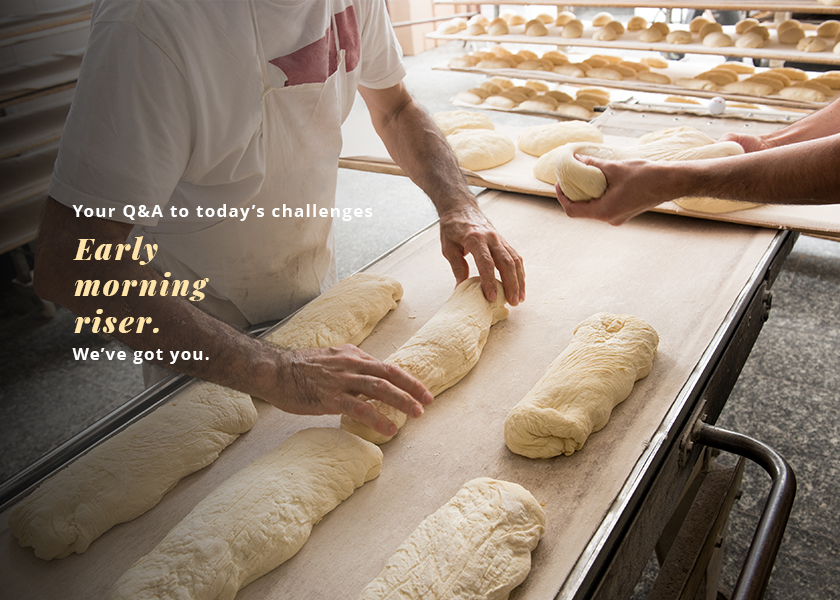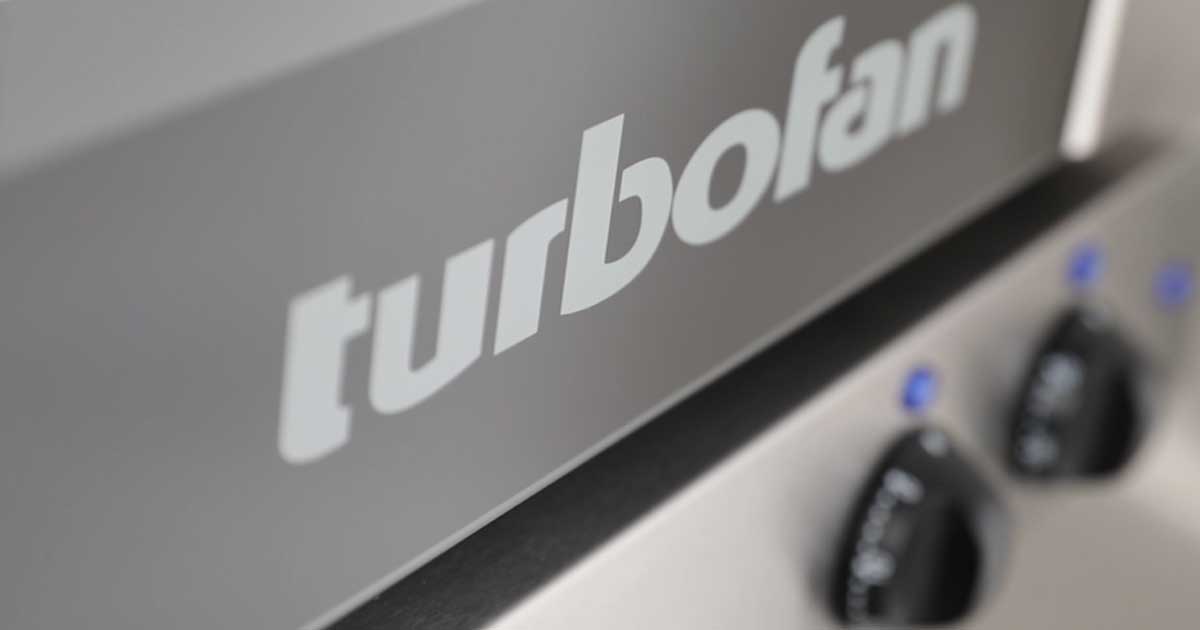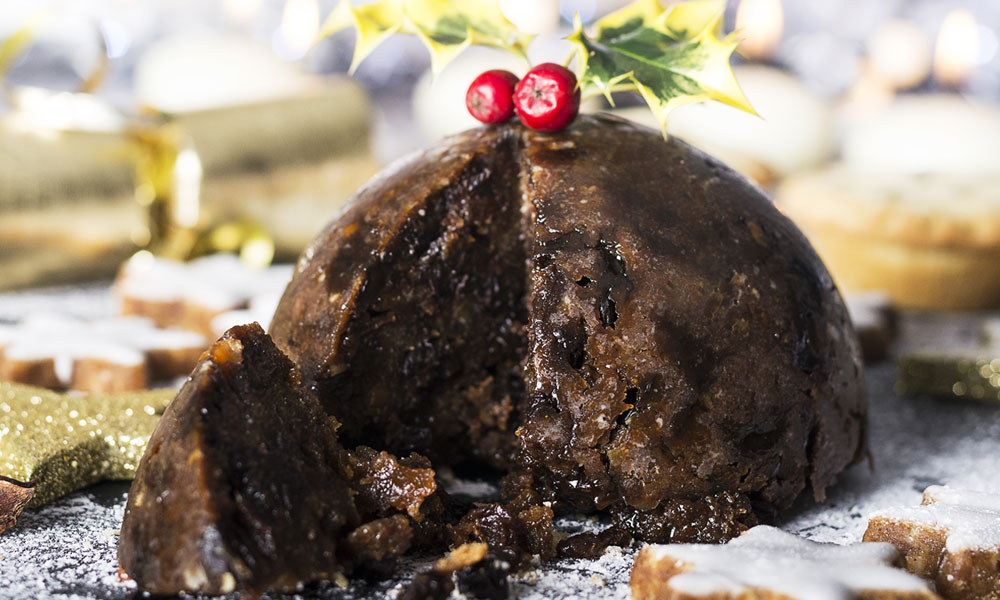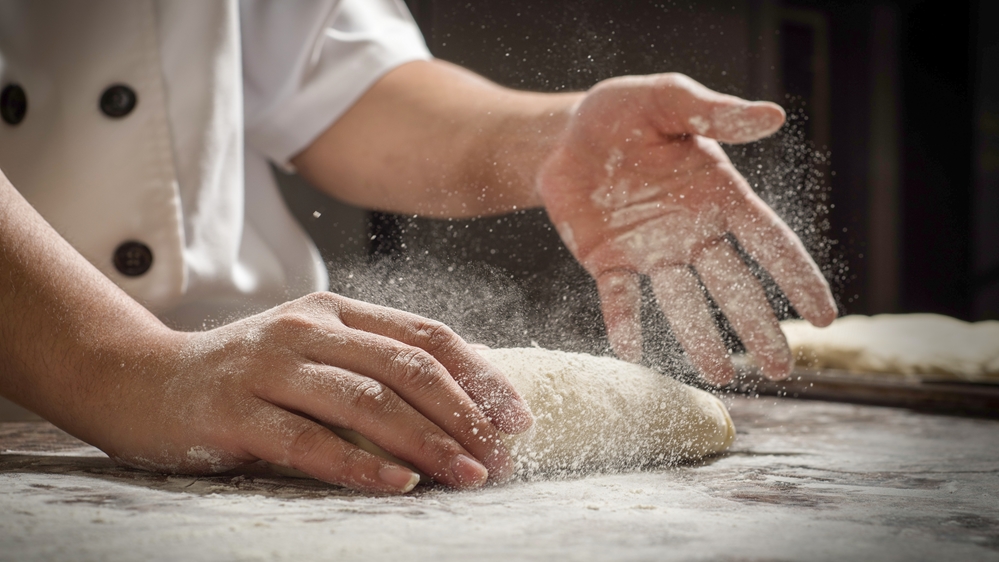
Over the years, we have helped bakers and pastry chefs with a variety of solutions based on our decades of experience in the bakery industry. The commercial bakery industry is constantly confronted with new challenges.
You might be wondering how to reduce food waste in a bakery, or you might be looking for the answer to how to bake crispy and fluffy croissants in a commercial oven. We’ve compiled a list of some of the most common and popular bakery equipment Q&As that you might find useful.
Finding experienced bakers within a busy retail and wholesale bakery – Artezen SYNCRO divider and rounder to maintain consistency.
Q: I have a small but very busy retail and wholesale bakery in suburban Sydney. I supply bread rolls on a daily basis to a few schools, cafes and aged care facilities in the area.
Bread rolls are already a large part of our production but I am not able to grow my customer base for them unless I can find a way to make them more efficiently.
I don’t want to reduce the range of other baked items we sell so I need to find ways to cut the labour time involved with producing bread rolls.
Finding experienced bakers is also a big problem, so any equipment we look at must be easy to use for non-skilled staff. What can you suggest to help us?”
A: “Bread rolls are a reasonably good profit line but using traditional methods to produce them can take a lot of time. I think you need to look at automating your production. The Artezen SYNCRO automatic roll divider rounder will increase your output and provide a consistent, high-quality product that helps grow your business.
Commercial dividers can be easily operated by one person and will dramatically reduce the labour time involved in producing bread rolls in volume. Typically, one guy using the Artezen SYNCRO divider rounder can produce the same volume of bread rolls in half the time it would take 2 guys using a traditional bun divider rounder.
You don’t need to be a skilled baker to use the Artezen SYNCRO range and it is well suited to a wide range of dough types, including Hot Cross Buns, so next Easter will be a breeze.”
How to increase production when experienced bakers are hard to find? – Automating with Ciberpan dividers
Q: “We intend to expand our production of loaves, baguettes and bread rolls. We know there is plenty of demand within the community for our products but it is difficult to commit to increasing production when experienced bakers are really hard to find.
We are based in a University suburb with plenty of keen students wanting work, so we are looking for affordable bakery equipment that is suitable for low-skilled staff.
If we can find equipment that is easy to operate with plenty of safety features, that will be a huge bonus for us. Any suggestions?”
A: “New technology in bakery equipment allows for easier operation in many instances. Obviously, you will need experienced bakers for some of the aspects of bread production, however, some commercial bakery equipment can be operated by less experienced staff to carry out laborious processes without any real risk to the end quality of your bread products.
Ciberpan’s industrial divider that can quickly and easily adjusted to divide different weight products. When used in a production line with our intermediate prover range and our final moulder, you can be assured of a good quality product at the end of the process.
The divider speed is adjustable, so on busy days you can increase the output to meet demand.”
Looking to minimise labour and increase efficiency? – Washtech warewashing range saves you time and labour.
Q: “I run a large retail and wholesale bakery in Melbourne. I have invested in high-quality baking equipment and I am happy with my production line up. However, I am always looking for different ways to improve efficiency in the business.
Bakery equipment aside, what other equipment can you suggest to minimise labour and increase efficiency?”
A: “A lot of bakeries seem to have overlooked the time involved in washing bakery equipment. Apart from reducing time in the clean-up, there is a legal requirement to wash equipment at certain temperatures. Wash temperature of between 55°C – 60°C and rinse temperature of at least 82°C to sanitise effectively.
Consider the Washtech PW1 and PW2 warewashers. Cooling wires and planetary mixers’ bowls up to 60 litres in capacity can fit in these front-loading machines easily.
The PW2 has a wider body that has an internal chamber with a usable width of 1100mm. Both versions have usable depth capacity of 600mm plus and height capacity of 750mm.
You may also want to consider a Washtech UD undercounter glasswasher/ dishwasher for your front-of-house washing needs. It is ideal as it is a compact option for washing plates, cutlery, cups and glasses, with a low hot water consumption of 2.2 per cycle.”
How to streamline the pastry production lineup? – RONDOSTAR 5000 dough sheeter range gives you the perfect consistency, saves you on operational costs and manual labour!
Q: “We are a retail and wholesale pie shop and our turnover increases significantly year on year. Currently, we are selling well over 1500 pies a day and using an older floor sheeter.
I need to streamline our pastry production as we believe we can double our sales over the next 18 months. What best sheeter option would you suggest?”
A: “ Sheeting pie bottoms and tops is no doubt a significant labour factor for your business. You can save considerable time in pie production if you have the right pastry sheeter to suit your production volume.
The RONDOSTAR 5000 dough sheeter range is the latest release from Rondo and gives you fantastic consistency of product while requiring minimal skill levels to operate. You just select the programme you want to run, press start and follow the steps on the screen. It’s as simple as that.
The RONDOSTAR 5000 dough sheeter will take a 12.5kg block of pastry from 40mm to a roll of 2mm thick pastry with the perfect consistency of thickness very quickly. It’s very simple to operate so you can allocate this job to less experienced staff while your more skilled bakers can get on with the business of pie making.”
Considering getting a deck oven for your bakery? What are the benefits and features it offers?
Q: “I have a mid-size bakery in a Brisbane suburb. I am looking to replace my bakery oven soon. Any good suggestions from the Rotel ovens and deck oven range?”
A: “A good bakery equipment choice depends on the type of bakery business and your expectations for the future of the business.
Deck ovens are usually used for traditional oven-bottom bread baking. The stone soles in the deck oven produce a strong and even heat distribution throughout the chamber. It gives the rustic artisan look that many commercial bakers seek. A deck oven is ideal for the experienced baker who wants to bake high volumes of a specific product at a time.
The Rotel commercial bakery equipment offers flexibility to commercial bakers. Each chamber has its own control panel and temperature control. Fit ceramic baking tiles to any chamber that allows you to bake traditional “stone sole baked” products.
It is perfect for baking various bakery products simultaneously as you can “split bake” using the multiple product programme feature.
All Rotel bakery ovens have 99 inbuilt baking programmes. Tray capacity will range from 10 to 20 trays, offering different options for a commercial bakery of any size.“
What special features should you look out for when purchasing a commercial spiral mixer for your bakery?
Q: “I am planning to buy a spiral mixer for my bakery business. What are the main features to consider when purchasing a commercial spiral mixer?”
A: “The first thing to consider is the capacity of the spiral mixer required. We recommend going a size up than you currently require. If you are currently mixing dough up to 80kg then look at a mixer that can accommodate 120kg – you will place less stress on the mixer, maintenance costs will be lower and the expected life cycle will increase quite substantially.”
There are a few features to watch out for:
1. Removable bowl vs fixed bowl
A ‘fixed bowl’ spiral mixer has the ability to rotate, but the bowl cannot be removed. This type of mixer is designed for retail bakery environments.
A removable bowl spiral mixer is designed for larger production environments where a continuous mixing cycle is required, or for situations where an extended period of “bowl rest” is desired – i.e. in a traditional “time dough” – in these situations you would have multiple bowls for one mixer.
Additionally, a removable bowl can be coupled with a bowl hoist or elevator to easily load the dough into the hopper of a continuous dough divider.
2. Reverse vs non-reverse function
Most spiral mixers that are 50kg and above have a reverse function whilst smaller mixers are single direction only. The reverse function on a spiral mixer will assist with rapid initial blending of ingredients at low speed and will also assist with the quick incorporation of “additional ingredients” into the finished dough, i.e. sultanas into a bun mix.
3. Breaker bars
Look for a spiral mixer that incorporates a breaker bar. A breaker bar is better for gluten development.
Moffat predominantly sell spiral mixers that incorporate a breaker bar. Most bakers look for this feature to assist with dough development and reduce mixing times
4. Closed guard vs wire grid guard
An enclosed guard reduces the amount of airborne flour dust, but it is not as durable as a wire guard. An enclosed guard is made of polycarbonate, which can easily crack or break if mistreated; replacement is typically an expensive exercise.
A wire guard facilitates the addition of ingredients and, because it does not create an enclosed space, it contributes to less heat development, which is an important consideration.
Moffat carries a range of spiral mixers including: Sottoriva, Spiroforce, Paramount and OEM.
The best brand and product to use will be determined by your company’s needs and budget. Contact a member of the Moffat Baking Team to discuss your specific needs.
How a Merrychef High Speed Oven helped reduce the amount of unsold product left in a pie warmer?
Q: “I have a suburban bakery that produces bread, pastries, pies and sausage rolls. Our location is within a shopping mall, and turnover can be unpredictable. I am currently using a pie warmer to keep pies and sausage rolls ‘at the ready’, but very often I have unsold product left in the pie warmer that I need to throw out. Is there a solution that will reduce wastage?”
A: “Merrychef conneX High Speed Cook Oven range would be a great addition to your bakery. The Merrychef conneX range has a few advantages over the standard pie warmer. Firstly, the Merrychef High Speed Cook Oven allows you to heat to order. A chilled pie at 4°C will take approximately 01.40 minutes to be heated and ready to consume.
By heating to order, you can achieve zero wastage at the end of the day. We recently worked with a bakery that had similar challenges as yours. By installing a Merrychef High Speed Cook Oven, they saved hundreds of dollars per week in wastage.
The ideal way to get the most out of your Merrychef is to allow your pie heater stock to reduce through your lunch period to have a minimal display, and heat your customers’ specialty pie as they request it.
The Merrychef High Speed Oven is a plug & play unit that sits on a benchtop. It’s easy to operate and clean, with additional advantage over a pie warmer as it is a cool to touch high speed oven – a really good safety aspect.
If you want to know more about the complete commercial bakery range we offer, visit Moffat’s Bakery equipment.
Have a question for us? You can help us build this Q&A list so that we can derive more solutions for all of us in the baking world. Send us a message via our social channels or contact us on our website.




